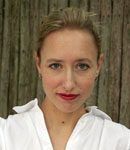Crusades of the clueless: Who will win the war on science?
By Elisabeth Eaves | November 1, 2016
There once was a civilization that led the world in science. Its foremost thinkers made great leaps in mathematics, engineering, astronomy, and medicine, and its institutes of higher learning drew scholars from around the known world. Unfortunately, thanks to a combination of religious zealotry and a failure to adopt new technology, the civilization abandoned its tradition of scientific inquiry and collapsed into closed-mindedness and despotism.
This great flourishing took place in the Islamic world from the eighth to thirteenth centuries, when Muslim scholars developed not just algebra and medical treatises but the scientific method itself. The eleventh-century thinker Ibn Al-Haytham, in his groundbreaking work Optics, argued that knowledge-seeking should begin with “an inspection of the things that exist and a survey of the conditions of visible objects,” and called for “exercising caution in regard to conclusions.” He and his kind were gradually shut down by an alternate school of thought led by the anti-rationalist theologian Abu Hamid al-Ghazali, who argued, as some Christian fundamentalists do today, that the only cause of anything is God. By their logic, just because heavy objects are observed to fall downward 10 times out of 10, it does not mean that God could not, on a whim, make them fall up. Al-Ghazali’s views prevailed in the Muslim world, and the West took up the torch of science.
This story is just one historical example of science denial followed by societal collapse cited by Shawn Otto in his big, bracing battle cry, The War on Science: Who’s Waging It, Why It Matters, What We Can Do About It. China’s Mao Zedong put ideology ahead of knowledge when he crafted plans for his Great Leap Forward, which, through grain-production quotas untethered to reality, helped lead to a massive famine that killed tens of millions of people. In Russia under Stalin, biologist Trofim Lysenko was appointed head of the country’s main genetics institute after claiming he knew how to produce better crop yields. He did not, but he grew to wield so much power that research into the science-supported genetics he rejected was virtually outlawed. “Soviet agriculture, biology, and genetics were held back for forty years, weakening the Soviet Union and helping lead to its eventual downfall,” Otto writes . . .
Together, we make the world safer.
The Bulletin elevates expert voices above the noise. But as an independent nonprofit organization, our operations depend on the support of readers like you. Help us continue to deliver quality journalism that holds leaders accountable. Your support of our work at any level is important. In return, we promise our coverage will be understandable, influential, vigilant, solution-oriented, and fair-minded. Together we can make a difference.















